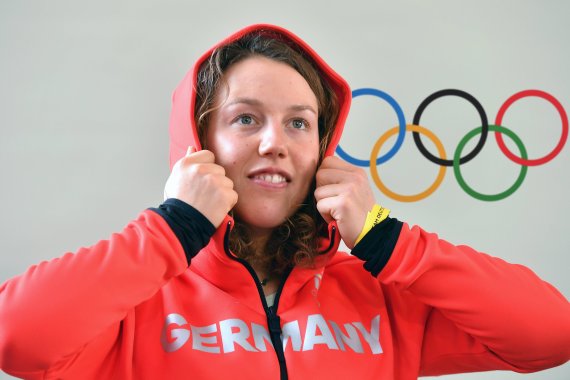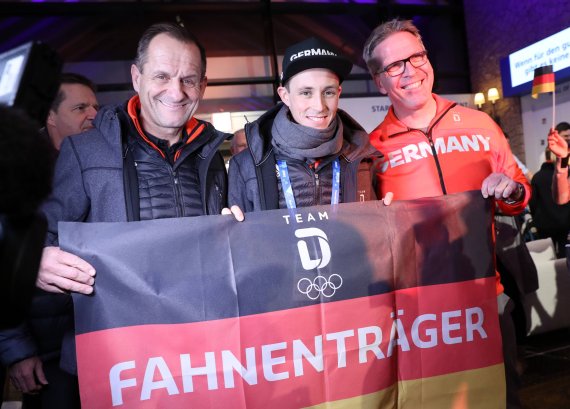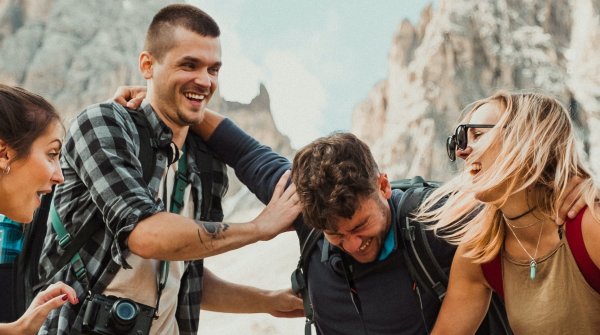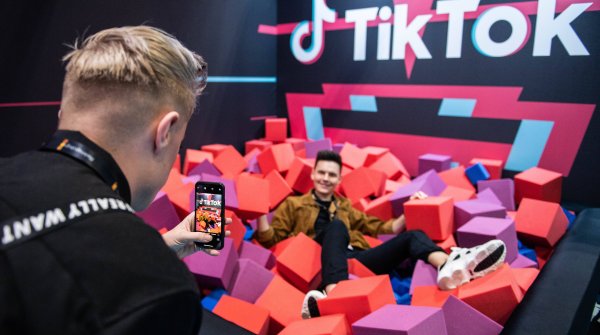
The German Olympics team sponsors are using the German house at the Winter Olympics in Pyeongchang for live product demonstrations. At the Zurich stand, you can push the pedals of a racing bike for a good cause. Adidas is offering pieces from the Olympics collection such as the red hoodie with “Germany” on it; they can be tried on and ordered online.
Meanwhile, another partner (“Kornspitz”) is baking fresh bread and crusty pretzels in the basement. When the German Olympics team celebrates the medals it is bound to win during the two weeks of the Winter Olympics in South Korea, the sponsors of the German team and their brands will never be far away.
However, the DOSB will nevertheless not earn an amazing fortune from its business with the Olympic rings. Whilst the IOC earned an impressive 5.7 billion dollars (4.65 billion euros) from the last four-year Olympics cycle, Germany’s national confederation DOSB earned not even a hundredth part of this over the same period. The DOSB is likely to earn 6.64 million euros during the Olympics year 2018 from its Olympic Games marketing contract with Deutsche Sport-Marketing (DSM).
This is only marginally more than in 2016 (6.6 million euros), when the Summer Games were held in Rio de Janeiro. In addition, the sponsors support the DOSB with non-monetary contributions such as outfits for the Olympics, cars or flights to the tune of 2.273 million euros.

“Unlike the IOC, we do not have any television rights, which generate the largest proportion of their earnings. We also have no events and can therefore only use the Olympics as a showcase for a limited period,” explains the DOSB’s head of marketing Florian Frank. That is enough to organize an attractive German house at the Olympic Games in cooperation with the partners.
However, it is not enough to finance the considerable increase for winning a gold medal at the Olympics demanded by the athletes; the Sporthilfe sports foundation currently awards athletes 20,000 euros for a gold medal win. After all, the Olympic Games cost a lot of money. Sending the German Olympics team to South Korea costs 6.09 million euros; the German government pays only just under 3.56 million euros of this.
In order to make more money from marketing the German team, the DOSB is exploring new avenues and reinventing itself. For example, for the first time, a major marketing campaign featuring the stars of the German Olympics team (“Remember my face”) was launched before the Winter Olympics in cooperation with top partner Adidas. In the run-up to the Winter Games, the campaign posters were displayed in numerous German cities.
“It focuses on showing the interesting personalities behind the medals. With this campaign, we have proved that we are not outmoded but young, fresh, and attractive. We simply have to develop further if we want to make more money for sports,” explains Frank. That is also why this time round, the Olympics Outfitting went on for four days and was staged as a major event.
With Adidas, Toyota, the German savings banks and Zurich, the DOSB currently has four top partners that contribute most of the millions of earnings. In addition, there are around another twenty further, smaller sponsors. “Compared to Rio, the number hasn’t changed much”, says Frank. However, what has changed is what the sponsors expect.
“Years ago, a few sponsors paid a lot of money just for their showing their logo anywhere near the German Olympics team. With the social media and other things, the activation is now much more comprehensive.” That is why a fan reporter is reporting from the German house for the DOSB – after all, these days, the Olympics are above all a major product presentation event.
- Awards
- Mountain sports
- Bike
- Fitness
- Health
- ISPO Munich
- Running
- Brands
- Sustainability
- Olympia
- OutDoor
- Promotion
- Sports Business
- Textrends
- Triathlon
- Water sports
- Winter sports
- eSports
- SportsTech
- OutDoor by ISPO
- Heroes
- Transformation
- Sport Fashion
- Urban Culture
- Challenges of a CEO
- Trade fairs
- Sports
- Find the Balance
- Product reviews
- Newsletter Exclusive Area
- Magazine





